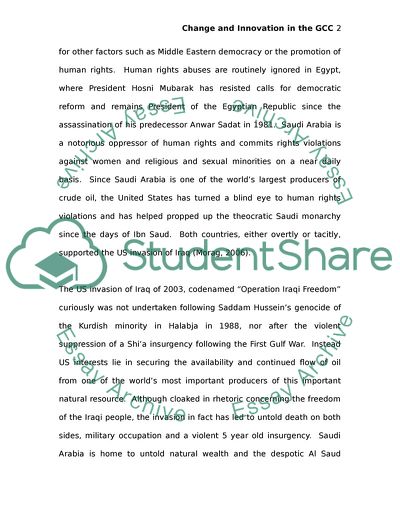Cite this document
(The Development Strategies of the Oil-Rich Countries of the Gulf Assignment, n.d.)
The Development Strategies of the Oil-Rich Countries of the Gulf Assignment. Retrieved from https://studentshare.org/macro-microeconomics/1557174-tutorial-paper
The Development Strategies of the Oil-Rich Countries of the Gulf Assignment. Retrieved from https://studentshare.org/macro-microeconomics/1557174-tutorial-paper
(The Development Strategies of the Oil-Rich Countries of the Gulf Assignment)
The Development Strategies of the Oil-Rich Countries of the Gulf Assignment. https://studentshare.org/macro-microeconomics/1557174-tutorial-paper.
The Development Strategies of the Oil-Rich Countries of the Gulf Assignment. https://studentshare.org/macro-microeconomics/1557174-tutorial-paper.
“The Development Strategies of the Oil-Rich Countries of the Gulf Assignment”, n.d. https://studentshare.org/macro-microeconomics/1557174-tutorial-paper.


